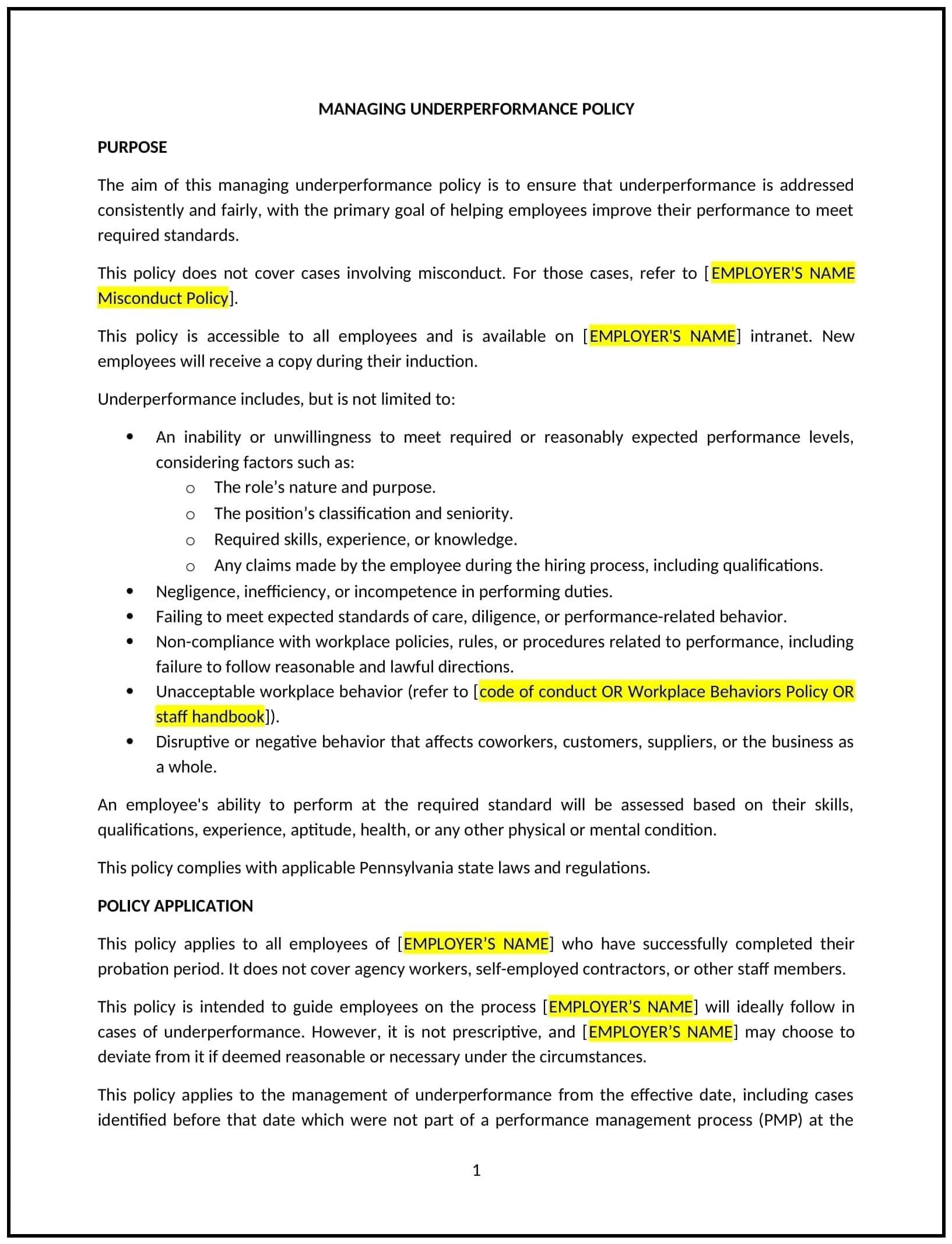Managing underperformance policy (Pennsylvania): Free template
Got contracts to review? While you're here for policies, let Cobrief make contract review effortless—start your free review now.

Customize this template for free
Managing underperformance policy (Pennsylvania)
This managing underperformance policy is designed to help businesses in Pennsylvania address workplace performance issues constructively and consistently. Whether identifying skill gaps, setting improvement goals, or providing necessary support, this template ensures a structured approach to managing underperformance while adhering to Pennsylvania labor laws and promoting a positive workplace culture.
By using this template, businesses can improve productivity, support employee development, and reduce risks associated with performance-related disputes.
How to use this managing underperformance policy (Pennsylvania)
- Define underperformance: Clearly outline what constitutes underperformance, such as failing to meet goals, consistent tardiness, or poor teamwork.
- Establish a review process: Provide steps for identifying and documenting performance issues, including regular performance evaluations and feedback sessions.
- Include improvement plans: Detail how performance improvement plans (PIPs) will be developed and implemented, including timelines and measurable goals.
- Address support measures: Specify resources available to help employees improve, such as training, mentoring, or additional supervision.
- Reflect Pennsylvania-specific considerations: Tailor the policy to align with local labor laws, such as requirements for documentation and fair treatment during performance reviews.
Benefits of using a managing underperformance policy (Pennsylvania)
A well-structured managing underperformance policy supports productivity and fairness. Here's how it helps:
- Enhances accountability: Sets clear expectations for performance and outlines steps for addressing underperformance.
- Promotes fairness: Ensures employees are treated consistently and provided with opportunities to improve.
- Supports compliance: Aligns with Pennsylvania labor laws to minimize legal risks during performance management.
- Encourages development: Provides employees with resources and support to meet performance expectations.
- Reduces workplace disputes: Establishes a transparent process for managing performance issues, reducing misunderstandings and conflicts.
Tips for using a managing underperformance policy (Pennsylvania)
- Communicate expectations: Share the policy with employees during onboarding and discuss performance expectations regularly.
- Train managers: Equip supervisors with the skills to identify underperformance and address it constructively and fairly.
- Document performance issues: Maintain detailed records of underperformance, feedback sessions, and improvement plans to ensure accountability and transparency.
- Provide timely feedback: Address performance issues as soon as they arise to prevent them from escalating and to give employees an opportunity to improve.
- Review periodically: Update the policy to reflect changes in Pennsylvania labor laws, workplace practices, or organizational goals.